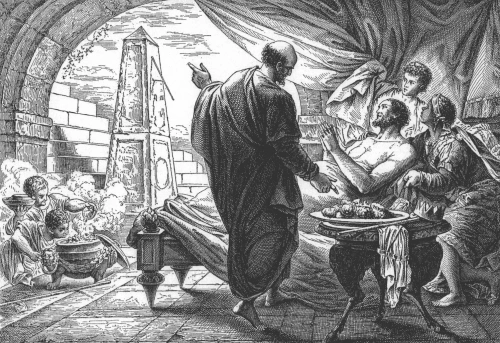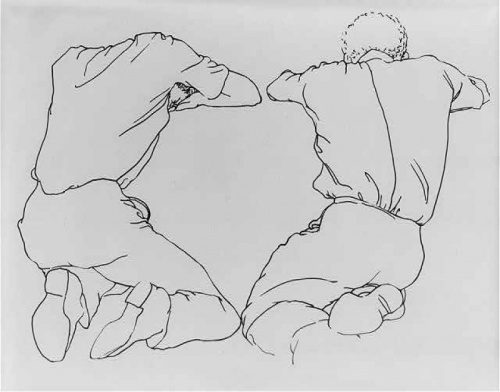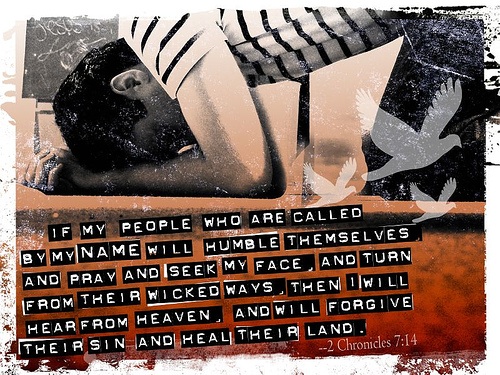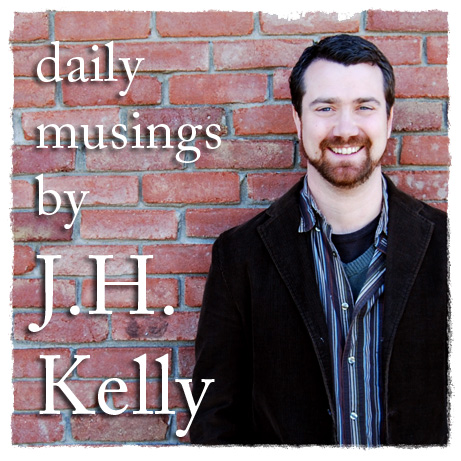 There, by the Ahava Canal, I proclaimed a fast, so that we might humble ourselves before our God and ask him for a safe journey for us and our children, with all our possessions. I was ashamed to ask the king for soldiers and horsemen to protect us from enemies on the road, because we had told the king, “The gracious hand of our God is on everyone who looks to him, but his great anger is against all who forsake him.” So we fasted and petitioned our God about this, and he answered our prayer. (Ezra 8:21-23)
There, by the Ahava Canal, I proclaimed a fast, so that we might humble ourselves before our God and ask him for a safe journey for us and our children, with all our possessions. I was ashamed to ask the king for soldiers and horsemen to protect us from enemies on the road, because we had told the king, “The gracious hand of our God is on everyone who looks to him, but his great anger is against all who forsake him.” So we fasted and petitioned our God about this, and he answered our prayer. (Ezra 8:21-23)
Ezra was a scribe and a priest who led a caravan of Israelites on a 900 mile trek from Babylon to Jerusalem to beautify the temple with the blessings and provisions of Persian King Artexerxes in the spring of 458 BC. In the passage above, however, we see that while this band of travellers had the endorsement of an earthly king, their true help came from God. Ezra’s name is a shortened version of ‘Azariah’ which means ‘YHWH helps.’ Aptly named, we see over and over in the book of Ezra how God is displayed as this man’s help (Ezra 7: 6, 9, 28; 8:18, 22, 31).
As a scribe, Ezra was a faithful witness of the law of God and he was thus bold to profess to the king both the goodness and the severity of God as Paul exhorts us to consider (Romans 11:22). Many in this hour would prefer to only emphasize the aspects of God that resonate with our flesh or that make us popular, but Ezra had just experienced Israel’s darkest hour which God clearly brought upon them because of their waywardness. As a student of the many warnings in scripture of the results of persistent disobedience (see Deuteronomy 28:15-68; 32; 2 Chronicles 7:19-22; the book of Jeremiah) and as a living witness to the discipline of the Lord, the wrath of God would be a fresh and relevant topic to this man in charge of giving spiritual direction to this group of returning exiles. The last thing he would want to do would be to lead them to repeat the mistakes of their predecessors that brought about the destruction of Jerusalem and put them in exile in the first place. With over 150 references to the wrath of God in the Bible, almost a third of which are in the New Testament, we should not be silent on the issue. Ezra wasn’t and it clearly had an impact on the most powerful man of his day: Artaxerxes writes in a letter to the scribe, “Whatever is commanded by the God of heaven, let it diligently be done for the house of the God of heaven. For why should there be wrath against the realm of the king and his sons?” (Ezra 7:23)
But lest you think me overly cranky, gloomy and negative let me balance what I just wrote. First of all, I am preaching to myself, because I enjoy being liked as much as everyone else and the wrath of God is a topic I myself at times get squeamish about. And while there are aspects of this topic I still wrestle through, I know this: there is actually no contradiction between God’s love and His judgments. His judgments are there to remove that which hinders love. If God did not discipline us it would be evidence of the absence of His love. If God did not bring evildoers to justice, it would be evidence of His lack of goodness. And without a place for the wrath of God to be a permissible topic, the fear of God makes no sense. The promises and blessings that come with the fear of the Lord are numerous, but let it suffice for me to quote Proverbs 19:23:
“The fear of the Lord leads to life, And he who has it will abide in satisfaction”
What I appreciate about Ezra is his balanced presentation of both the severity and the goodness of God. Not only that, but Ezra was a man not content to talk about ethereal concepts without a demonstration of the truth he espoused. The promises of Divine protection layed out in Psalm 91 are either true or they are not. If we come upon a truth through the way of knowledge, that is legitimate, but we should make sure that we exit that room through the door of experience. James was big on this. We are to be doers not just hearers of the word (James 1:22). Conversely if we come upon a truth by way of experience, we should make sure that we exit that room through the door of knowledge. The Father after all is searching for those who will worship him in spirit and in truth (John 4:23-24).
There is something inspiring about someone who will boast of the promises of God and then step out in faith and prove God’s word to be true. Ezra recognized that it would be a sham to tell the king of Persia that God’s gracious hand of favor rests on those who seek him and then ask for soldiers and horseman to be their protection. Granted, long trips in those days were treacherous endeavors with the strong likelihood of encountering bandits of thieves. But Ezra knew a God whose promises were not in vain.
John Wimber, founder of the Vineyard Movement, got saved and began asking, “When do we get to do the stuff?” “What stuff?” the people around him would ask. “You know, the healings and stuff I read about in the bible.” Most of his peers being raised in the soup of unbelief that permeates Western culture had no grid for what he was talking about. Convinced that God meant what he said when he exhorted his followers to heal the sick (Matthew 10:8, Jams 5:14-16) he began teaching on Sunday mornings about healing and would pray for every person that needed healing. He preached on healing without changing the topic for 18 months (!) and prayed for thousands of people before he began to see any breakthrough. But breakthrough came and touched people all over the earth, giving permission for believers everywhere to take God at His word regarding his power to heal.
The first time I stepped out to raise a support team as a full time missionary I got to do the Ezra thing in my own little way. I had set a piddly budget goal of raising $900 per month to live on during my college ministry training program. With a few weeks to go before the money needed to at least be pledged, I had $25 per month pledged to my name. I received a phone call from the director of the ministry asking if I was doing anything to make my needs known. “We’ve never had an intern who we accepted not raise their support, but you could be the first.” At first I kicked into panic mode. I made a few phone calls, sent out a few more letters. Honestly, my untrained efforts were not that impressive. I did everything wrong. But then I made a decision. “God, this is your idea. I believe you have called me to this. I will be making sacrifices. I gotta believe you’re more into this than I am. And your word says that if I seek your kingdom and your righteousness, You will meet my needs (Matthew 6:33). So tell you what. I am going to see if you mean what You say. I am going to start telling all my unbelieving co-workers that I get to see a $9000 miracle within the next two weeks.” And that’s what I did. My co-workers thought I was weird, but I was having fun stepping out in faith and putting God’s word on the line. Deadline day came, and the bookkeeper reported that I had exactly $900 a month pledged. Not $875, not $925, but exactly $900. Like John Wimber is famous for saying, “Faith is spelled R-I-S-K.” It was risky to declare publicly that I was expecting a financial miracle to happen within two weeks. It was risky for Wimber to labor week after week, month after month professing God the healer before seeing breakthrough. It was risky for Ezra and his crew to travel in the ancient Middle East without armed guards. But faith that gets results says “There is no plan B.”
So if Ezra had faith in God’s word, why call the people to fast and pray? What’s up with that? Isn’t faith in God’s word enough? Yes. Certainly many miracles and breakthroughs happen without fasting and without prolonged corporate prayer. But remember the context. Israel is returning from exile. God told Israel in Jeremiah 29:10-14
For thus says the Lord: After seventy years are completed at Babylon, I will visit you and perform My good word toward you, and cause you to return to this place. For I know the thoughts that I think toward you, says the Lord, thoughts of peace and not of evil, to give you a future and a hope. Then you will call upon Me and go and pray to Me, and I will listen to you. And you will seek Me and find Me, when you search for Me with all your heart. I will be found by you, says the Lord, and I will bring you back from your captivity; I will gather you from all the nations and from all the places where I have driven you, says the Lord, and I will bring you to the place from which I cause you to be carried away captive.
What was true for Israel then is true for us today. If you find yourself stepping out in faith with no plan B, you will feel the need for prayer. If you know your circumstances are a matter of life and death, or you simply get a revelation of your great inadequacy, you will be searching for God with all of your heart. Ignoring hunger pangs for the sake of Jesus helps catapult me into wholeheartedness. Denying our flesh and feasting on God’s presence and promises makes a whole lot of sense in the critical hour of need. It’s not that doing so somehow impresses God with our faith and dedication, for He’s already convinced of the truth of His word. Rather fasting with prayer gets our prone-to-unbelieving-selves into alignment with the God who means what He says and says what He means. His strength is made perfect in our weakness (2 Corinthians 12:9). When our hearts come into agreement with His, we get to experience the benefit of His gracious hand of favor and protection just as Ezra and his caravan did on return to Jerusalem.











